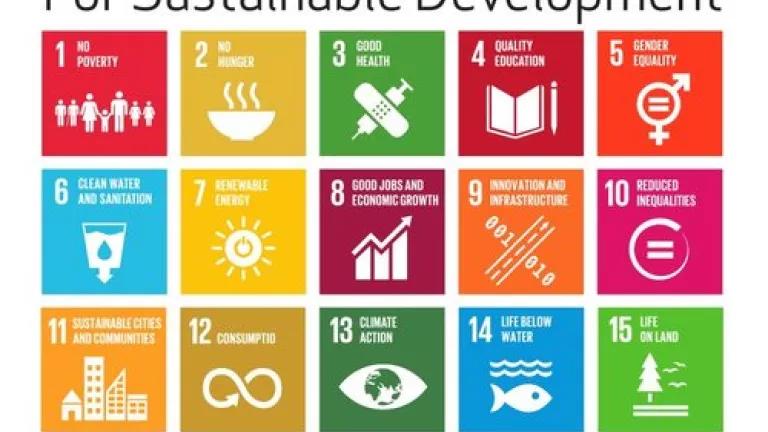
Today in New York, world leaders from 193 countries adopted new global goals to achieve three transformational outcomes in the next 15 years: end extreme poverty, fight inequality, and combat climate change. Consisting of 17 indivisible goals to promote prosperity for people and planet, the so-called Sustainable Development Goals are a blueprint for changing our world by 2030.
It is the first time world leaders have acknowledged that we need to tackle the biggest challenges of our age - poverty, inequality, and climate change - together.
The global goals are the culmination of more than three years of intense negotiation and unprecedented stakeholder input. They represent the largest consultation in human history, having engaged millions of people from all walks of life and all countries.
And because the global goals apply to every country in the world, the United States and Uganda are now united in their shared aspirations, as are Canada and Cambodia. Pope Francis has called for such "new and universal solidarity" among the human family to respond to the climate change challenge and lift people out of poverty.
The new global goals are predicated on the fact that the world cannot develop sustainably without combatting climate change, and cannot protect the climate without sustainable development. But when world leaders head home from New York this weekend after adopting the global goals, their job of marrying sustainable development with climate action this year will be far from over.
The first critical test of world leaders' commitment to the new global goals will be the major climate conference in Paris this December. Without a strong climate agreement in Paris, the world will not be able to deliver on its aspirations for sustainable development contained in the global goals.
Many of the global goals, such as on energy, forests, and consumption and production, will guide action on the core drivers of climate change. For example, enhancing access to clean energy will reduce carbon pollution and also combat poverty by delivering where outdated energy modes cannot. Therefore, actions to achieve the global goals are also actions on climate change.
For the global goals to be reached, everyone needs to do their part: governments at all levels, the private sector, civil society, and people like you. Such an alliance for action of leaders across society will be the only way to deliver on the promises that have been made.
Paris will be the first real test of that alliance's strength. Paris must send an unmistakable signal that the global community is accelerating the transition to a clean energy future, and lifting millions out of poverty in the process.
The Paris climate agreement and the new global goals are a once-in-a-generation opportunity. Ours is the first generation that can end extreme poverty, and the last that can prevent dangerous climate change. The only way to seize that opportunity is through a global alliance that unites sustainable development with climate action to deliver on the aspirations for people and the planet over the next 15 years.

